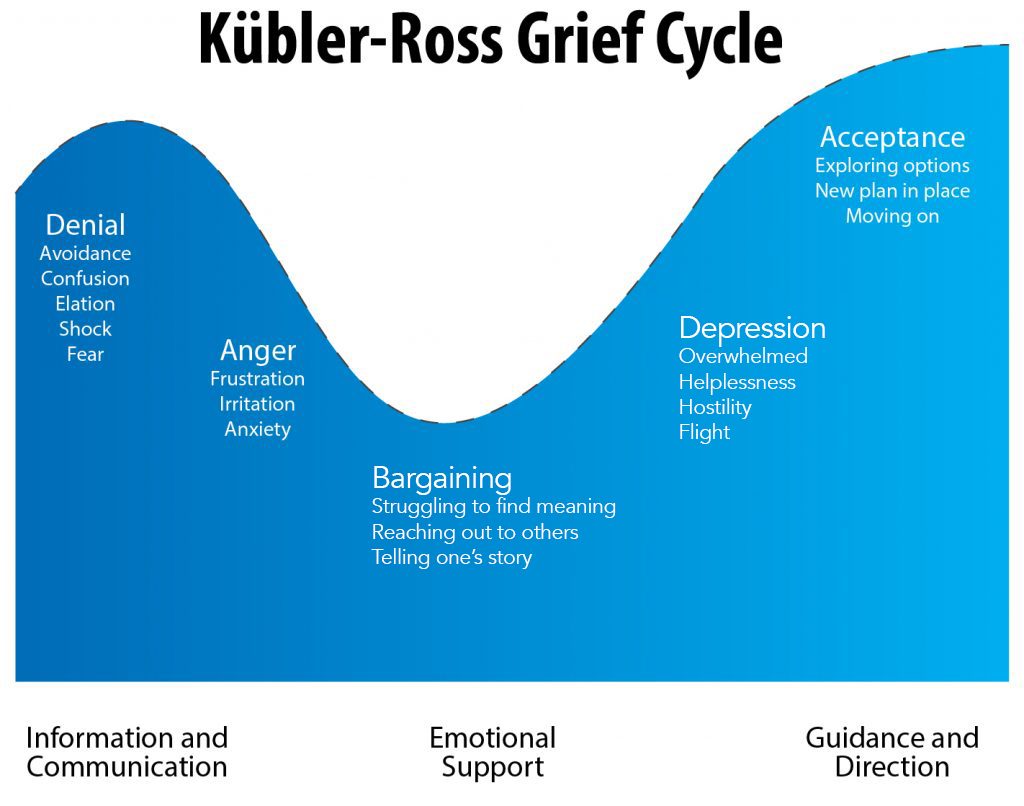Yes, these are apparent and random thoughts that may arise when individuals, in the middle mark of life, find out that they have lost their job.
Some would say, “What’s the big deal? Shrug it off and start retirement early.” Hold on a second. The famous developmental stage theorist, Erik Erikson, indicated that, between 40-65, the basic virtue is care, and the subsequent psychosocial crisis is Generativity vs. Stagnation. Generativity carries with it the idea that adults at this stage of life want to create something so impactful, that it will outlast the inventors. If this success happens, then there is a basic virtue of Care that sets in. If Generativity does not happen, then a sense of disconnection and failure may kick in. Therefore, job loss at this stage of life has the potential of heart-wrenching emotional crisis—An entirely different picture of how most people say they want to retire.
Furthermore, for those of us in the helping profession, we have learned that when anyone, at any stage of life, becomes unexpectedly unemployed, it may set off a wave of loss-related responses. Another well-know theorist, Elisabeth Kübler–Ross, defined it as such:
As one can tell from the above diagram, the ultimate destination should be Acceptance. However, until arriving at this gate, the person in this grief process is riding some serious waves of Denial, Anger, Bargaining (ie. “If I did not take that vacation and stayed behind to finish that project, then…”) and Depression. Social, emotional and professional support may be present to assist and guide, but the waves still come.
So, the thoughts, responses and feelings of anyone who just heard that they now have been added to the unemployed population statistics, will intertwine and at times, become overwhelming.
In an interview, a local Career Counsellor and post-secondary school course instructor, Steven White, eloquently explained job loss for older workers has a tremendous impact, and possibly traumatizing. This part of the workforce have invested more time and energy in their professions. Simply put, this crisis can be:
- Linked to a loss of work-related friends, image and identity.
- Totally derail the set road and plan for retirement.
Younger workers who lose their employment may bounce back quicker, as they are not carrying the above-stated experience.
What can those who are over 40 do if they lose their jobs? White suggests:
- Seek emotional support from friends, family and trained professionals gifted in this area.
- Network to gain more support, reinforce the professional self, and tap into potential job leads.
- Be open to use a variety of job search methods, such attending network meetings, visiting local employment centres, conducting cold calls, and seeking out online resources.
- Be aware of gifts, talents and values.
- Be ready to accept, perhaps, more than one work assignment based on what they have to offer.
Above all, daily focus on:
“The privilege of a lifetime is to become who you truly are.”
–Carl Yung


























